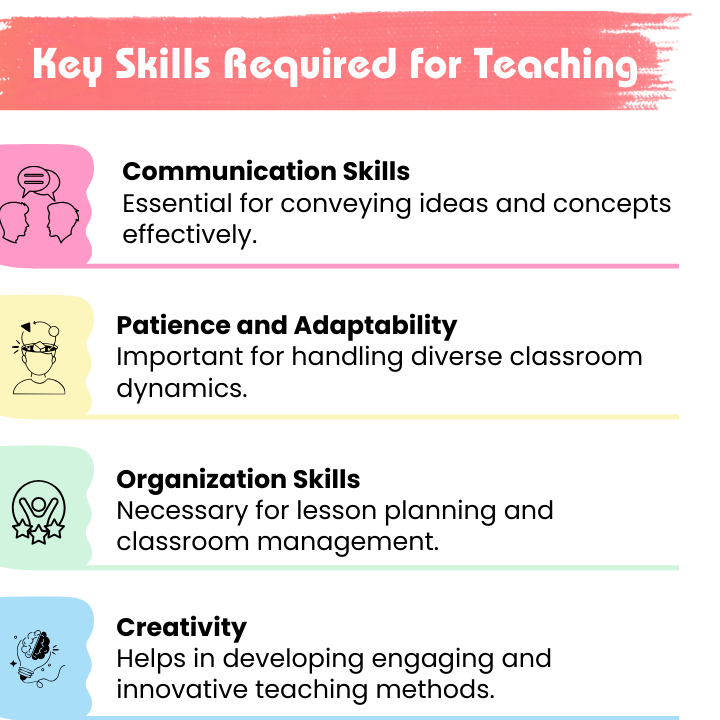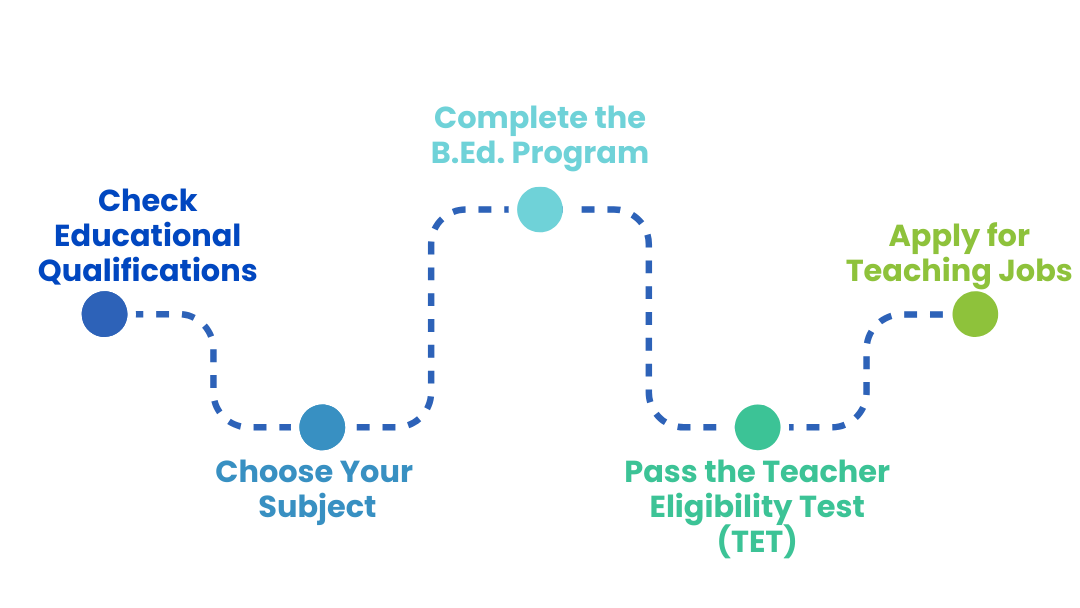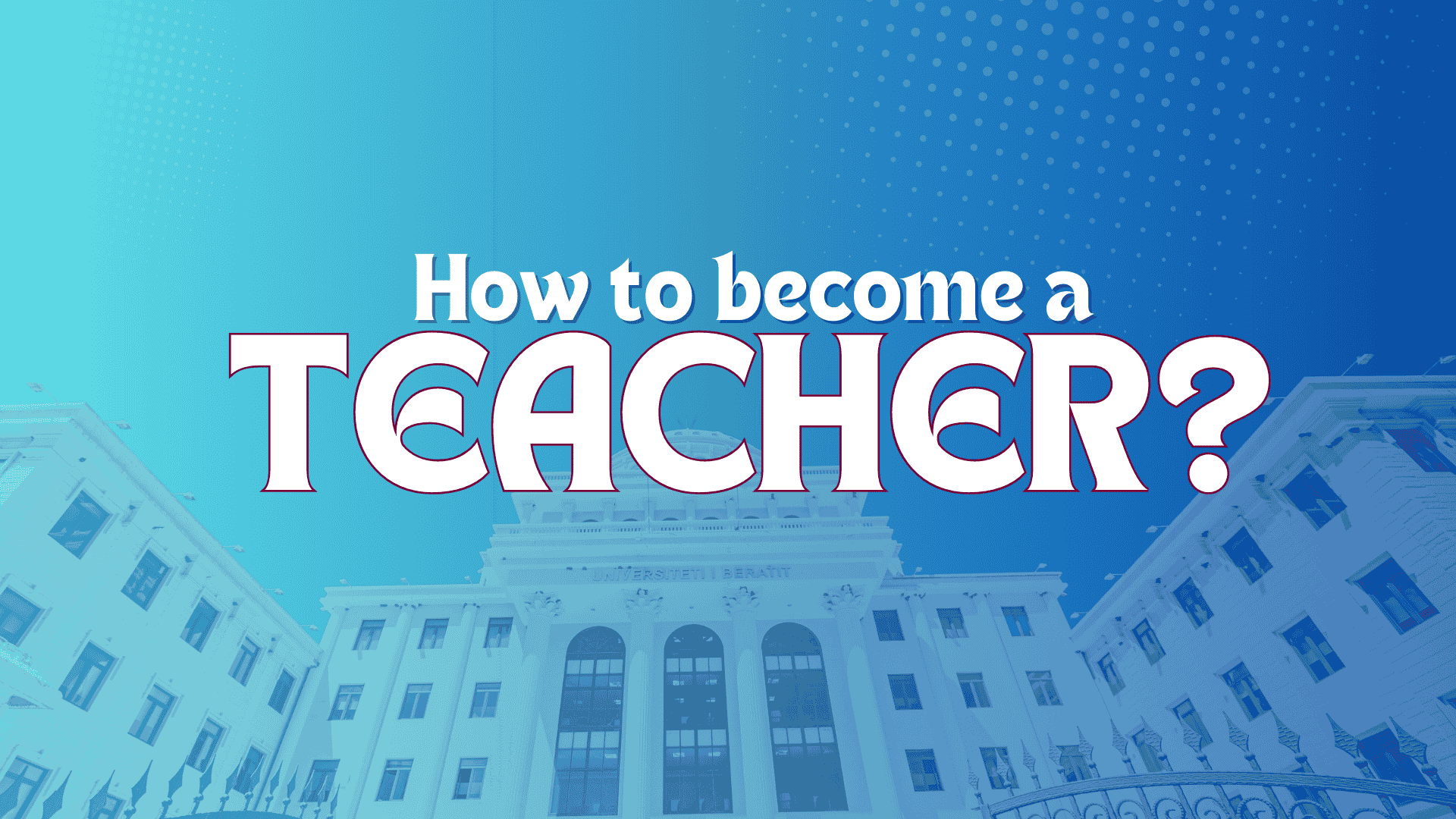If you are tired of surfing the pages to find the step-by-step guide on how to become a teacher, you have landed on the correct page.
Teaching isn’t just a job; it’s a calling! It’s a chance to influence and inspire young minds, helping shape the future one student at a time. With that being said, where do you begin on this exciting journey?
Don’t worry, we’ve got you covered!
This blog is your friendly guide to exploring how to become a teacher, whether in India, dreaming of teaching abroad, or figuring out the next steps after finishing your 10th, 12th, or even graduation.
Understanding the Teaching Profession

Before we get into the nitty-gritty of how to become a teacher, let’s take a moment to explore the diverse roles and responsibilities that come with the job.
Teachers are more than just information providers; they are mentors, motivators, and role models who play a vital role in shaping their students’ characters.
This profession demands patience, empathy, excellent communication skills, and a dedication to continuous learning.
How to Become a Teacher in India?
To become a teacher in India, you need to follow a structured pathway:

- Educational Qualifications:
- For teaching primary classes (I-V), candidates should have a 2-year Diploma in Elementary Education (D.El.Ed) or a Bachelor of Elementary Education (B.El.Ed), recognized by the National Council for Teacher Education (NCTE).
- For teaching upper primary classes (VI-VIII), a Bachelor’s degree and either a 2-year Diploma in Elementary Education or a Bachelor of Education (B.Ed) are mandatory.
- For teaching higher secondary classes (XI-XII), a Master’s degree in the subject you wish to teach along with a B.Ed is usually required.
- Choose Your Specialization:
- Decide on the subject or age group you want to specialize in, as this will influence your educational journey.
- Complete the B.Ed or ITEP Program:
- Enroll in a recognized B.Ed program. Alternatively, you can choose the Integrated Teacher Education Program (ITEP), a newly introduced 4-year integrated course that combines your undergraduate and teaching degrees.
- Pass the Teacher Eligibility Test (TET):
- After completing your B.Ed or ITEP, you must pass the Central Teacher Eligibility Test (CTET) conducted by CBSE or the State Teacher Eligibility Test (State TET). This exam evaluates your understanding of teaching methodologies and subject knowledge.
- Apply for Teaching Jobs:
- Once you have your qualifications and have cleared the TET, you can apply for teaching positions in schools. Government schools generally post job vacancies on their respective state education department websites.
How to Become a Teacher After 10th?
Starting early can help shape your teaching career path. Completing 12th and choosing relevant courses will be your foundation. Here is the guide to the process-
- Complete Higher Secondary Education:
- Finish your 12th grade first. Opt for streams like Humanities or Science that can lead to teaching.
- Pursue a B.Ed Program or the ITEP:
- After completing 12th, enrolling in a B.Ed or the 4-year Integrated Teacher Education Programme (ITEP) can streamline your path towards becoming a qualified teacher.
- Focus on Subject Specialization:
- During your program, focus on subjects that align with your teaching interests to ensure a specialized skill set.
How to Become a Teacher After 12th?
After 12th, you can directly pursue a B.Ed. or an integrated program like ITEP, paving your way into teaching. Check out the stepwise process-
- Choose a Stream:
- After completing your 12th grade, decide if you want to pursue a Bachelor’s degree in Education (B.Ed.) or opt for the ITEP, which offers a streamlined path.
- Enroll in a B.Ed or ITEP Program:
- Enrolling immediately after the 12th can give you a head start in gaining the required qualifications to become a teacher.
- Complete Required Examinations:
- Prepare for the TET or CTET as soon as you finish your B.Ed/ITEP to qualify for teaching positions.
How to Become a Teacher in a Government School?
To teach in government schools, the right qualifications and clearing CTET or State TET are essential prerequisites. Here you go step by step-
- Educational Qualification:
- Similar to the general requirements, a B.Ed degree or the ITEP is mandatory for teaching in government schools.
- State Eligibility Test:
- In addition to the TET, each state may have its own eligibility test (State TET) for government school positions. Research and prepare for these tests, which can vary by state.
- Application Process:
- Keep an eye on state education department notifications for job openings. The application process usually involves submitting your qualifications and passing an interview.
How to Become a Teacher Abroad?
Teaching abroad requires specialized qualifications, certifications, and an understanding of local regulations, along with proficiency tests like TOEFL or IELTS. Here is the detailed guide-
- Research the Requirements:
- Teaching requirements vary significantly by country. Research the specific qualifications needed for the country where you wish to teach.
- Obtain Necessary Qualifications:
- Most countries require a Bachelor’s degree in Education or the subject you wish to teach, along with a teaching certification.
- For example, in the United States, teachers often need to pass the Praxis exam. English-speaking countries may also require TOEFL or IELTS.
- Visa and Work Authorization:
- Secure the necessary visa or work authorization to teach abroad. Websites like International Teacher Recruitment provide resources for international teaching opportunities.
How to Become a Teacher Without a Degree?
While having a degree is often essential, there are alternative paths to becoming a teacher:
- Teaching Assistant Positions:
- You can work as a teaching assistant while pursuing further education, which gives you practical classroom experience.
- Alternative Certification Programs:
- Some countries offer alternative certification programs for individuals with significant experience or skills in a subject area.
- Private Tutoring:
- Consider offering private tutoring services. While not a formal teaching position, it allows you to teach and gain experience.
Wrap Up
Being a teacher is a fulfilling career that demands commitment and a love of learning.
Whether you are aiming to become a teacher in India, abroad, or through various educational pathways, the steps outlined above provide a clear roadmap to achieving your goal.
Remember, teaching is not just about imparting knowledge; it is about inspiring the next generation to reach their full potential.
With the right qualifications, preparation, and passion, you can get on a fulfilling career as a teacher and significantly impact student’s lives.




